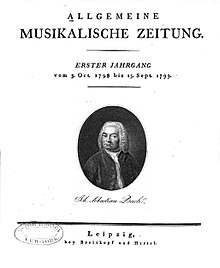Giuseppe Maria Gioacchino Cambini was an Italian composer and violinist.

Breitkopf & Härtel is a German music publishing house. Founded in 1719 in Leipzig by Bernhard Christoph Breitkopf, it is the world's oldest music publisher.

The Allgemeine Zeitung was the leading political daily journal in Germany in the first part of the 19th century. It has been widely recognised as the first world-class German journal and a symbol of the German press abroad.
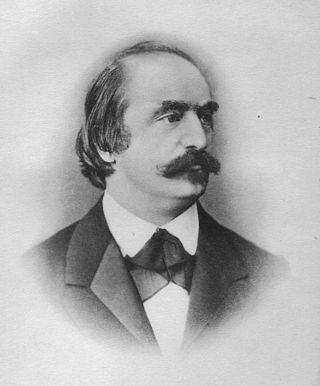
The Oxford Companion to Music defines music criticism as "the intellectual activity of formulating judgments on the value and degree of excellence of individual works of music, or whole groups or genres". In this sense, it is a branch of musical aesthetics.
Moritz Adolf Schlesinger, generally known during his French career as Maurice Schlesinger, was a German music editor. He is perhaps best remembered for inspiring the character of M. Arnoux in Gustave Flaubert's novel Sentimental Education.
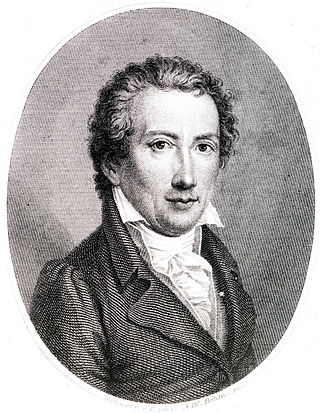
Johann Friedrich Rochlitz was a German playwright, musicologist and art and music critic. His most notable work is his autobiographical account Tage der Gefahr about the Battle of Leipzig in 1813 — in Kunst und Altertum, Goethe called it "one of the most wondrous productions ever to have been written". A Friedrich-Rochlitz-Preis for art criticism is named after him — it is awarded by the Leipzig Gesellschaft für Kunst und Kritik and was presented for the fourth time in 2009.

The Revue musicale was a weekly musical review founded in 1827 by the Belgian musicologist, teacher and composer François-Joseph Fétis, then working as professor of counterpoint and fugue at the Conservatoire de Paris. It was the first French-language journal dedicated entirely to classical music. In November 1835 it merged with Maurice Schlesinger's Gazette musicale de Paris to form Revue et gazette musicale de Paris, first published on 1 November 1835. It ceased publication in 1880.

Neue Berliner Musikzeitung was a musical periodical that appeared in the years 1847–1896 and was published by Bote & Bock. It was a continuation of the Berlin musical newspaper published between 1844 and 1847 by Karl Gaillard.

Gottfried Christoph Härtel was a music publisher in Leipzig, companion to Bernhard Christoph Breitkopf. He took over their company, Breitkopf & Härtel, in 1796 from Breitkopf, who was having financial difficulties.

The International Association of Music Libraries, Archives and Documentation Centres (IAML), also known as Association Internationale des Bibliothèques, Archives et Centres de Documentation Musicaux (AIBM) and Internationale Vereinigung der Musikbibliotheken, Musikarchive und Musikdokumentationszentren (IVMB), is an organisation of libraries with music departments, music conservatory libraries, radio and orchestra archives, university institutes, music documentation centers, music publishers, and music dealers that fosters international cooperation and promotes music bibliography and music library science. It was founded in Paris in 1951 and its three official languages are English, German, and French.
Répertoire international de la presse musicale, commonly known as RIPM, provides access to music periodical literature published between 1750 and 1966 through an annotated index, RIPM Retrospective Index to Music Periodicals, and two full-text publication series, RIPM Retrospective Index to Music Periodicals with Full Text and RIPM Preservation Series. RIPM also provides access to full-text jazz publications from 1914 to the 2000s through RIPM Jazz Periodicals.

Johann Baptist Krall was an Austrian composer, conductor, music editor/arranger, and member of the board of directors of the Wiener Singverein of the Gesellschaft der Musikfreunde.

The Kyrie–Gloria Mass for double choir, BWV Anh. 167, is a mass composition in G major by an unknown composer. The work was likely composed in the last quarter of the 17th century. The composition has two sections, a Kyrie and a Gloria, each subdivided in three movements. It has twenty-two parts for performers: twelve parts for singers, and ten for instrumentalists, including strings, wind instruments and organ. Johann Sebastian Bach may have encountered the work around 1710, when he was employed in Weimar. In the 1730s he produced a manuscript copy of the Mass.
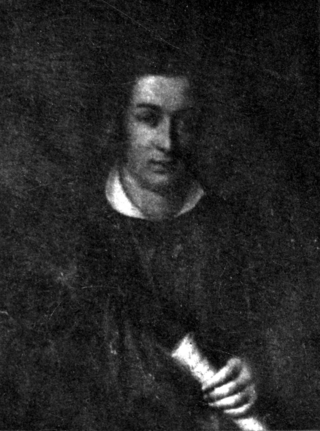
Friedrich Wilhelm Arnold was a German musician, music seller, publisher and folk-song collector.

Wilibald Nagel (also Willibald Nagel, was a German musicologist and music critic.
The Allgemeine deutsche Musikzeitung was a musical specialist journal, which appeared from 1874 to 1884, first in Leipzig and Kassel, then in Charlottenburg. In the early years it was called Allgemeine Deutsche Musik-Zeitung – Wochenschrift für das gesammte musikalische Leben der Gegenwart.
Christian Johann Christoph Schreiber was a German theologian, philologist, philosopher, and poet. He was also the Superintendent of the dioceses of Lengsfeld and Dermbach. He was connected in friendship or correspondence to writers and philosophers of his time, and published poetry, sermons, historical and philosophical works.
Wilhelm Albert Rischbieter was a German violinist, music educator, composer and docent at the royal Hochschule für Musik Carl Maria von Weber Dresden.
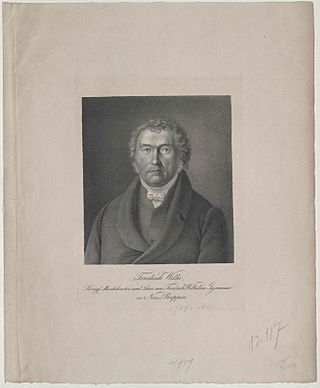
Christian Friedrich Gottlob Wilke was a German organist, composer, music teacher, music writer and organ revisor.
